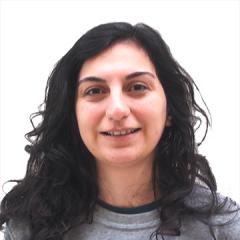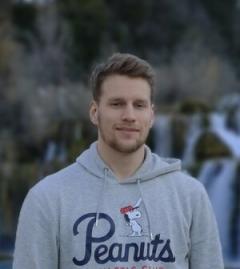Analysis of 16S rRNA metagenomic experiments
30 November and 1 December
General context
This training will start with the presentation of a 16S pipeline in a Galaxy environment. This will enable the preprocessing of the data going from raw reads to taxonomic tables and phylogenetic trees.
The 2nd part of the training will give an overview of numerical ecology and takes part entirely in R (meaning that knowledge of R is mandatory).
Processing and statistical analysis of 16S rRNA metagenomic experiments using R & Lotus pipeline.
The following analytical steps from raw data to communicable results will be on the program:
- Metagenomic experiment planning, execution and analysis
- Analyzing amplicon sequencing data with up-to-date tools and how to increase the quality of ASVs and OTUs, when to use what technique
- Post-clustering of ASVs to avoid intra-genomic ASV false-positives
- Working with low-biomass experiments, removing exogenous contamination in several scenarios
- Numerical ecology focused analysis workflow for both metagenomic and amplicon sequencing based studies
- Analysis of alpha/beta diversity
- Univariate statistics to identify species enriched in sample groups
- Multivariate statistics and visualization to identify clusters of samples
- Assessing microbial communities based on ecological principles and species distributions
The training is intended for people who have some experience with R. If you have no experience with R, you have to follow our R introduction training first.
Trainers
Falk Hildebrand

Falk Hildebrand is a bioinformatician with a passion for microbial ecosystems, bacterial evolution and developing computational systems to tackle these subjects in a combined perspective. Falk joined Earlham Institute in early 2019, where his new Hildebrand Group (also at Quadram Institute) will be developing metagenomic tools for tracking bacterial strains at high resolutions, to predict their genomic capabilities and explore their associations to diseases.
During his early career, Falk was working at the University of Constance (Germany) and the University of Sussex (UK) on bacterial evolution and tracking outbreaks of pathogens through following changes in their genomes. Moving from a genome centric view to a metagenomic view of whole microbial ecosystems, he worked during his PhD at the University of Brussels (Belgium) on bacterial associations to complex diseases such as IBD, obesity and Diabetes. For this, Falk developed bioinformatic pipelines to process 16S data (LotuS) as well as the statistical tools.
During his postdoc at EMBL Heidelberg (Germany), Falk continued his research on association to the human microbiome of complex diseases such as Diabetes and Parkinson’s disease, among others. His interests soon developed to track strains in the metagenomic datasets, as well as de novo assembling genomes from metagenomes. These techniques are mostly applied to the gut microbiome of mammals. Another interest of his is environmental metagenomics. For example, in 2018 he proved that in soils more fungi are usually connected to more antibiotic resistance in bacteria, and this is true on a local but also global scale.
Ezgi Özkurt

Ezgi was born in Istanbul, Turkey. She studied Molecular Biology and Genetics at the Middle East Technical University, Ankara and received her B.Sc. in 2014. She continued her education at the faculty of Biology in the same university where she obtained her M.Sc. diploma in 2015.
Ezgi followed her interest for evolutionary biology and continued her studies at the Max Planck Institute for Evolutionary Biology in Germany, working within the Environmental Genomics group as PhD student. She obtained her PhD degree in 2020.
Ezgi is currently working as a PostDoc in Hildebrand group. Her main interests are metagenomics data analysis and vertical transmission of microbial communities.
Joachim Fritscher

Joachim Fritscher studied Bioinformatics in his BSc and MSc. He got into metagenomics at the end of his MSc and wrote his thesis about a k-mer based taxonomic classifier for metagenomic reads using a protein reference.
Now Joachim is trying to use the k-mer based approach as well as other methods to improve the resolution of taxonomic classification and SNP calling to strain level. He's also striving to learn and apply new methods on biological data and making them performant with C++.
Program
09h00 - 10h15 Welcome and flash talks
10h15 - 10h30 break
10h30-11h30 Experimental Design, DNA extraction, 16S amplification (functional genes amplicon sequencing), qPCR
11h30 - 11h45 break
11h45 - 12h30 Existing pipelines analysis of amplicon sequencing data
12h30 - 13h30 lunch
13h30 - 14h00 Filtering, removing chimeric sequences and clustering high quality OTUs
14h00 - 14h10 break
14h10 - 14h50 Introduction to Galaxy
14h50 - 15h00 break
15h00 - 15h55 LotuS2 usage: First output and mapping files with LotuS2 and demultiplexing and quality control using sdm
15h55 - 16h05 break
16h05 - 17h00 LotuS2 usage: Advanced settings for clustering and taxonomy assignment.
17h00 - 17h30 Dessert: Install LotuS2 on the command line (only demonstration, not interactive)
09h00 - 09h30 LotuS2, part 2
09h30 - 11h00 Removing contaminants, quality control
11h00 - 11h20 break
11h20 - 12h30 Data normalization, alpha diversity
12h30 - 13h30 lunch
13h30 - 15h00 Differential taxa abundances, theory and hands-on
15h00 - 15h20 break
15h20 - 16h50 Beta diversity, Ordination, theory and hands-on
16h50 - 17h30 Wrap up and Close + optional Q&A
Practical info
30 November 2023 - 01 December 2023
Ghent - VIB/UGent FSVM II
Technologiepark 75
9052 Zwijnaarde
Belgium
30 November 2023 - 01 December 2023
Ghent - VIB/UGent FSVM II
From Ghent Sint-Pieters station, you can take bus 49, 50 or 70 to Technologiepark. Please check Routeplanner De Lijn for schedules.
30 November 2023 - 01 December 2023
Ghent - VIB/UGent FSVM II
There is only one entrance to Technologiepark. At the entrance, please take a ticket and have it validated at the reception desk of the FSVM building. Parking will only be allowed in regular parking spots (for instance in front of the building) and in the new parking tower. Parking alongside the roads or in other places where there is no regular parking is prohibited and after initial warnings, fines will be issued (€ 50).
30 November 2023 - 01 December 2023
Ghent - VIB/UGent FSVM II
room L4 of the FSVM2 building, Technologiepark, Gent
https://cmb.sites.vib.be/en/contact












